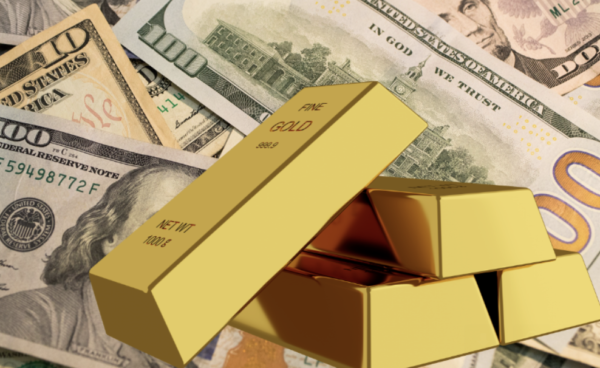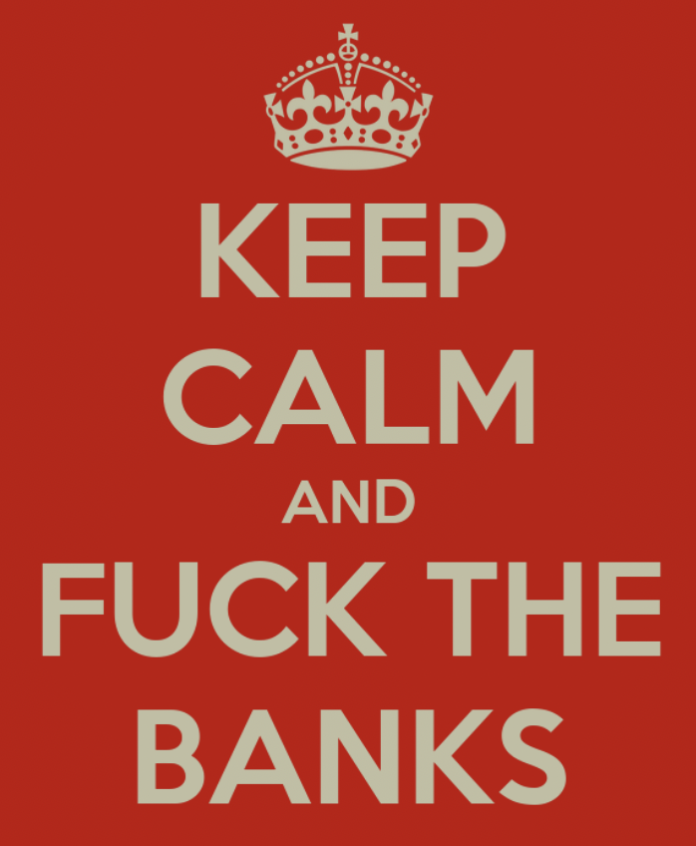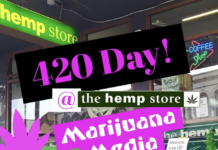One of the functions of money is that it is used as currency. But, as Williams writes, coins “are now almost worthless as currency except in large quantities or for making change”. Even Federal Reserve Notes — dollar bills — buy little these days.
“Today people use their bank accounts as a day-to-day currency that circulates through credit cards, debit cards, and smartphones — to purchase weekly groceries (and morning coffee),” writes Williams. “If a run on the banks paralyzed the banking system, even if only for a short time, the circulation of commodities would contract to an extent impossible at earlier stages of capitalist development.”

As Marxist economist Sam Williams discusses on his Critique of Crisis Theory blog, in early March, Silicon Valley Bank (SVB) in California — the “favorite bank of the area’s tech companies and associated venture capitalists” — announced it was selling its government bonds to raise cash. Fearful that their deposits were in danger, there was a run on the bank, forcing the Federal Deposit Insurance Corporation (FDIC) to shut the bank down.
While the collapse of the latter wasn’t directly related to the collapse of SVB, they added to the jitters that spread to the whole banking system in the United States and internationally.
The crisis at Credit Suisse led to another Swiss bank taking it over. Problems at Germany’s Deutsche Bank led to big stock losses.
Big deposits propped up
Under US law, Williams writes, bank deposits are insured up to US$250,000 — to protect small- and medium-sized deposits. Most of SVB’s deposits came from tech companies and venture capitalists, and were much higher. Despite this, the FDIC rapidly announced that all deposits would be fully covered.
The big commercial banks, says Williams, “will be asked to cough up the money to make up for the massive losses FDIC will incur by paying off large capitalist deposit owners”. This applies to SVB and any further bank collapses.
One of the functions of money is that it is used as currency. But, as Williams writes, coins “are now almost worthless as currency except in large quantities or for making change”. Even Federal Reserve Notes — dollar bills — buy little these days.
“Today people use their bank accounts as a day-to-day currency that circulates through credit cards, debit cards, and smartphones — to purchase weekly groceries (and morning coffee),” writes Williams. “If a run on the banks paralyzed the banking system, even if only for a short time, the circulation of commodities would contract to an extent impossible at earlier stages of capitalist development.”
The FDIC hopes to stave off such a general collapse of the currency system, writes Williams, which “would lead to an economic crisis worse than the bank runs of 1931‒33”, which “marked the transformation of the recession that began in 1929 into the Great Depression”.
Extortion
This threat gives the capitalist class great extortion power, writes Williams, to “insist that the FDIC, the Federal Reserve System or the Treasury bail out large depositors”.
The Joe Biden administration complied, and “wasted no time in claiming the taxpayer — unlike in 2008 — would not have to pay anything” for the bailout, “because the losses incurred by the FDIC would be paid with a special levy on the commercial banks”, writes Williams.
However, Williams notes, “the levy would tend to contract bank credit. If this happens the world economies — including in the US — would sink into a deep recession, causing mass layoffs within a few months”.
“And there’s another danger if the capitalists become convinced their bank deposits are as good as the dollar bills issued by the Federal Reserve Banks,” writes Williams. “In that case, they may decide Federal Reserve Notes are no more secure than bank deposits without the FDIC, Federal Reserve, and government guarantees. This would trigger a run on the dollar and paper currencies linked to it under the dollar-centred international monetary system into gold, the money commodity … This danger is real, as shown by the movement of the dollar price of gold since the crisis began.”
This would lead to stagflation as occurred in the 1970s, and then to a severe recession.
Such a scenario could happen if the Federal Reserve eases up interest rates to contain the crisis by printing more money (known as quantitative easing) in a bid to “secure a soft landing from the COVID aftermath boom”, writes Williams.
“In the current crisis, the Federal Reserve is forced to prop up bank deposits as the currency system on one side while staving off the collapse of the [dollar-centred] international monetary system on the other. These are contradictory goals.”
Overproduction
The cause of the current crisis is the overproduction of commodities in the COVID-aftermath boom.
After the 2007‒09 bank crisis and Great Recession, capitalists were cautious about accumulating inventories and investing, writes Williams. “This prevented a new worldwide overproduction crisis for years, at the price of lingering unemployment and eroding living standards. However, by late 2019 signs of overproduction were again developing, causing a spike in interest rates, though the situation had not yet reached a crisis.
“But then came COVID. In March 2020, the ruling class feared the virus would decimate the working-class population to such an extent their ability to squeeze surplus value out of the survivors would be impaired. They used state power to shut down much of the economy, throwing millions out of work overnight.”
The COVID shutdowns also caused a forced underproduction of commodities and reduction of inventories, writes Williams. When the shutdowns were eased, the boom began to rebuild inventories as demand for commodities soared. Demand exceeded supply at prevailing prices, resulting in high prices and higher profits. There was a rise in demand for labour power. But wages didn’t keep up with inflation, so real wages declined.
Inflation
The mainstream media and economists try to convince us that wage rises cause inflation, but the opposite is true. Workers’ wages struggle to keep up with inflation, which has other causes.
“The Federal Reserve System, headed by [Donald] Trump appointee Jerome Powell, hoped that inflation would disappear as the economy reopened,” writes Williams. But once set in motion, what economists call “multiplier and accelerator effects” accelerate a boom and its associated inflation, “until they run into the barrier of a shortage of ready cash”.
“At that point, they go into reverse. The boom is replaced by recession to liquidate overproduction at the price of millions of jobs,” writes Williams.
Banks use their customer deposits to make loans, and make money off the spread between what interest they charge on their loans and the interest they pay on deposits. But financial institutions are currently facing a changing economic climate, in which the free-money era of ultra-low interest rates has ended as the Federal Reserve tries to rein in inflation by making it more expensive to borrow.
The result caught Silicon Valley Bank unable to service its depositors.
Middle way?
The Federal Reserve System faces a quandary: If it creates more dollars not backed by gold to keep the boom going, profits in dollar terms would remain high for a while but turn negative in gold terms. This would cause capitalists to transform as much of their capital as possible into gold. The resulting run to gold would accelerate dollar inflation and threaten to bring down the dollar-centred international monetary system.
On the other hand, if the Federal Reserve allows the bank money system to become paralysed by bank runs, the dollar would be saved, but the economy would fall into a second Great Depression.
So the Federal Reserve is attempting to find a middle way: to keep the system of bank deposits as currency functioning, without bringing down the dollar’s role as the world currency — and other currencies linked to it.
The aim is to achieve a relatively soft landing, even if that means a recession with millions losing their jobs. But if the Federal Reserve is successful, it will keep a recession from turning into a depression, while saving the international monetary system.
Whether the Federal Reserve can pull it off this time remains to be seen. But even if it does, the world will face a similar crisis again in a decade or so.
Around the same time, two other banks collapsed. The California Silvergate Bank wound up operations, and the New York-based Signature Bank was shut down by the FDIC. As Williams reported, these banks were “heavily involved in lending to cryptocurrency companies”, and the problems leading to their collapse “could be traced back to the collapse of Sam Bankman-Fried’s FTX cryptocurrency exchange last year”.





Looks like credit crunch to start with commercial real estate in the USA. This guy does some good summaries of JP Morgan, Goldman Sacs reports and others:
https://youtu.be/86Uj6-5rip8
It is nothing new as it has occurred previously, in the 1930’s, although this time around there will not be a world war to exacerbate the economic issue.
One thing I’d like to point out is that the large depositors, that is the wealthy, want their deposits protected and yet, generally speaking, they pay a minimal amount of taxation through companies, trusts, etc.
I do not think that contracting credit is a particularly smart plan to implement in order to avoid a recession. It relies on commercial banks, which are at the forefront of day-to-day banking, including lending, placing heavy pressure on these entities.
Rather, it is time for all Western countries to seriously overhaul their streams of tax revenue. In most cases this would include reducing or removing GST; increasing the rate of company tax; introducing or increasing inheritance taxation, or an Asset Tax.
I think you’ll find dan that ww2 ‘cured’ the crisis of capitalism along with FDRs govt intervention in the US
Voltaire wrote that Paper Money eventually returns to its Intrinsic value-ZERO!
I’ve been buying Gold & Silver for years, preparing for this Scenario because Cash is Trash, it’s Toilet paper backed by nothing!
You could argue gold and silver are just shiny metals as well.
Yes shiny metals that have held their value for 10,000 years! I’m looking forward to buying a House for one Gold coin!
If things got so bad you could buy a house with a gold coin, you’d probably find that someone took your gold when they looted your corpse.
Violence, the universal currency that is accepted everywhere. Why use American Express, when bludgeoning someone with a stick is so much more convenient.
That shiny has held value for 10,000 yrs of Human History!
Every week I spend all my cash, usually by Saturday night. Not going to be left with any worthless toilet paper. Also I’m 67 with no savings or kiwisaver so No money No worries
You could also invest in lead, copper & steel, they are universally accepted in all post-apocalyptic environments as currency.
Meanwhile, in La La Land. And I mean Aotearoa /New Zealand in the broader sense, not the film.
Are we all fucked in the head or is it just me?
Write off all mortgages to foreign owned banks. Ban all foreign banks trying to get, or keep, their foot in our door. Launch ( I nearly wrote Lunch.) a royal commission of inquiry into AO/NZ banking and investment practices both here and off-shore spanning the last 140 years. Yep. You done read write. One Hundred and Forty Years.
Go up Big Urban Business like a rat up a drain pipe then come out like a dose of salts.
Oh, and read this from nouveau riche capitalist-fascist natzo sycophants rag of choice; radio Nu Zillind.
The Natzo’s are pledging. Must be breeding season.
“National pledges to double RSE worker cap, ban foreign investment in farms for carbon mining”
The hairless rat’s obviously been thrown from the woodpile. ” Go forth and bullshit urgently, ignoble bald rat.”
https://www.rnz.co.nz/news/political/488234/national-pledges-to-double-rse-worker-cap-ban-foreign-investment-in-farms-for-carbon-mining
On a serious note: A Royal commission of inquiry into relationships between big bad daddy business, the banks and their little farmer minions urgently!
Remember fellers?
AO/NZ = 5.2 mil people
= Primary industry is farming = food production= eating.
= about 50 K farmer people ( Personally, I think that figure’s grossly exaggerated.) = tractor riding sitting ducks= schmucks= riche urban elite’s = four now foreign owned banksters taking record net profits annually = $180.00 in net profits taken off shore a second = now nine multi-billionaire scum bags= grotesque false economy= poverty, hungry kids and a pillaged and decaying social infrastructure which used to be the envy of the world but now is fucked, sucked dry, bent, broken, deleted, murdered then buried. Funny that, Aye Boys? How’s them Billions of ours working out for ya? How’er the lobbyist enabled kick backs working out for ya?
ant like all currency so called ‘precious metals’ are only worth what people will pay for them, they are just currency and have no intrinsic value of their own, whereas a tin of baked beans different matter.
This Fed Reserve & commercial bank mumbo jumbo no doubt has some logic for capitalist economists and the finance capital eco system which these days includes aspirational, not that wealthy people, playing lotto with crypto and all sorts of investment “portfolios”.
My thoughts about a banking/currency collapse are with the working class people and the alienated which constitute many of the 50% in AO/NZ that own just 2% of the wealth. Given this sector lives direct credit to direct credit–what do all you smarties imagine happens when the ATMs and online bank transfers stop happening?
I keep cash around living in the Far North for various reasons including power cuts, long gone banks & reduced banking services of any kind etc. Try getting a card replaced when Kiwi Bank Kaitaia runs 3 days a week in a pop up–seriously. A lengthy currency collapse would eventually render cash worthless too, so what’s next all you fans of capitalism?
Societal breakdown or do we reassess the system, go socialist and boot capitalism for good.
for a taste of the future, northland floods, internet goes down, no atms or bank branches…cash becomes king…what happens in a cashless economy?
“Today people use their bank accounts as a day-to-day currency that circulates through credit cards, debit cards, and smartphones — to purchase weekly groceries (and morning coffee).”
And they use Paywave. Banks charge 2% on every transaction because a radio wave between a chipped card and a terminal is so fcking expensive. Poor people, who have to spend all their money to live are charged 2% on every dollar they take out of the bank to buy bread at the dairy. Which political party is going to stand up to the banks and stop them from charging people 2% for not continuing to lend their money to the bank.
why did you not print my comment?
Er, reasons…